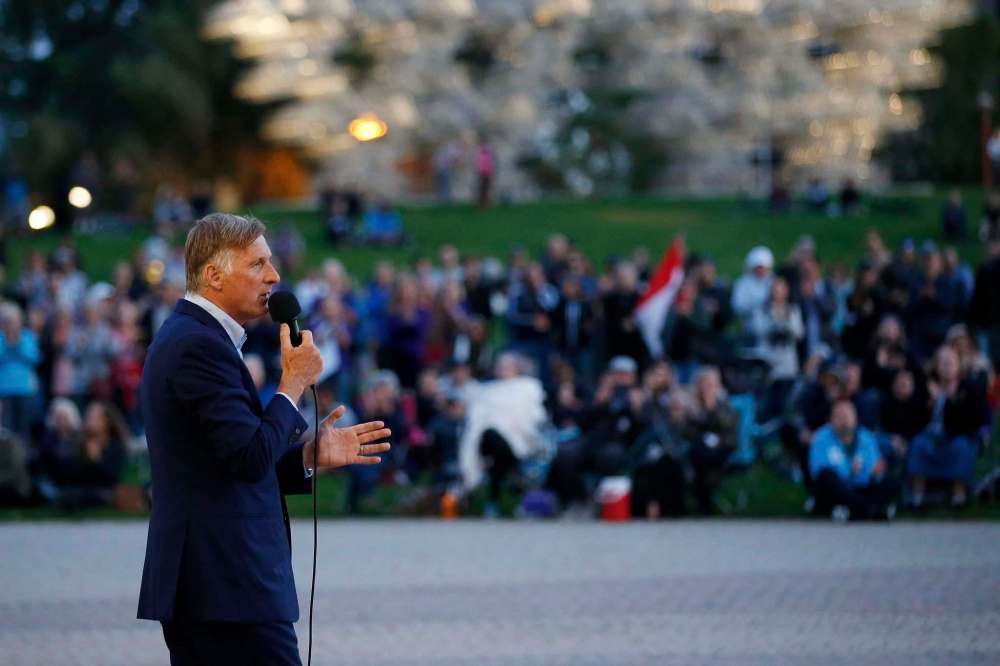Minority governments should embrace coalition
Read this article for free:
or
Already have an account? Log in here »
To continue reading, please subscribe:
Monthly Digital Subscription
$1 per week for 24 weeks*
- Enjoy unlimited reading on winnipegfreepress.com
- Read the E-Edition, our digital replica newspaper
- Access News Break, our award-winning app
- Play interactive puzzles
*Billed as $4 plus GST every four weeks. Offer only available to new and qualified returning subscribers. Cancel any time.
Read unlimited articles for free today:
or
Already have an account? Log in here »
Hey there, time traveller!
This article was published 28/09/2021 (1253 days ago), so information in it may no longer be current.
Welcome to the age of persistent minority government.
The results of the recent federal election suggest Canada’s main political parties may have hit the ceilings of their support, and the smaller parties are just not catching on with voters. Together, they form a political ecosystem that seems to have hit a roadblock that may keep producing minorities for some time to come.
Four of the last six Parliaments involved minority governments. There were many reasons to expect that this election would produce a different result.
The pandemic’s disruption of our lives, new depths of deficit and debt being plumbed by the federal Liberal government, and Prime Minister Justin Trudeau’s decision to call a snap election at a most inconvenient time should have led to change. Instead, the 2021 election produced a Parliament nearly identical to the one formed by the 2019 election.

The only truly new development was the rise of Maxime Bernier and the People’s Party of Canada. Fuelled by anger over social and economic restrictions, Mr. Bernier’s loose coalition of far-right voters and issues threatened to make major inroads in this election. And yet, the PPC did not win a single seat in Parliament.
Now, it seems unclear how Mr. Trudeau and his second minority government will govern. Although many people believe minority governments in this country produce good results, they just as easily degenerate into dysfunction. And previous attempts to establish formal coalitions to stabilize a minority Parliament have ended in disappointment.
In 2008, the leaders of the Liberal Party and NDP, with the support of the Bloc Québécois, signed a formal letter of co-operation in the event prime minister Stephen Harper’s Conservative government was defeated in a confidence vote. The plan petered out after Mr. Harper prorogued Parliament, prompting the Liberals to back out of the coalition agreement and pledge to support a Tory budget.
The Liberals withdrew largely because it seemed a majority of Canadians did not like the idea of a coalition. The mere suggestion of a three-party marriage of convenience is thought to have played a role in helping Mr. Harper win his majority in 2011.
Would anyone be willing to revisit the coalition issue after that experience? In a tightly fought 2019 election campaign, NDP Leader Jagmeet Singh said he would be willing to work with the Liberals to form a coalition if it meant keeping Andrew Scheer’s Conservatives from power. Mr. Trudeau’s Liberals managed to retain minority power without making a deal, but it’s hard not to wonder what would have happened had Mr. Scheer prevailed.Although many people believe minority governments in this country produce good results, they just as easily degenerate into dysfunction.
Given our most recent election results, it is incumbent upon federal parties to at least consider the option of more formal coalition arrangements. Coalitions do not create disadvantages for the parties involved if they govern in the best interests of all Canadians.
More importantly, formal coalition agreements would free government to govern, and avoid the constant state of electioneering that afflicts most minority Parliaments. Refusing to establish a formal coalition means governing parties need to negotiate on an issue-by-issue, bill-by-bill basis to stay in power, always with one eye on the possibility of another snap election.
Our collective anxiety about formal coalitions exposes a relative immaturity as a nation. Coalition governance is commonplace and effective in many parts of the world. Until we can change our electoral system, it’s incumbent upon our political parties, and the voting population, to consider the possibilities presented by coalitions. Times have changed; we must adapt our view of politics and government to a new political reality.





